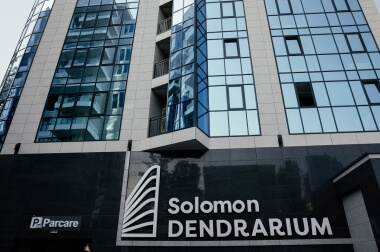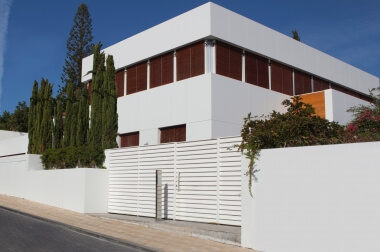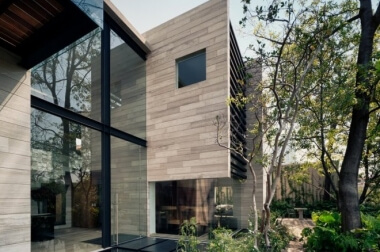Ventilated facades
Ventilated facades are innovative and efficient solutions for building exteriors, offering a range of significant advantages. These systems consist of a solid metal structure, insulation layers, and various cladding materials such as Dekton, granite, ceramic, or travertine.
Advantages of Ventilated Facades:
1. Thermal and Acoustic Insulation: Ventilated facades provide excellent thermal and acoustic insulation, maintaining stable interior temperatures and reducing external noise. This contributes to the building's energy efficiency, resulting in lower heating and cooling costs.
2. Protection Against External Factors: The cladding materials used in ventilated facades are highly resistant to wind, rain, solar radiation, and other harsh weather conditions. This ensures long-term protection and exceptional durability.
3. Prevention of Condensation and Mold: Thanks to the natural ventilation of the walls, ventilated facades prevent the formation of condensation and mold, ensuring a healthy and comfortable environment inside the building.
4. Flexibility and Customization: Ventilated facades are easily adaptable to various aesthetic preferences and project requirements. With a wide range of materials and finishes available, you can create a unique and attractive design for any type of building, whether residential or commercial.
5. Easy Maintenance: Due to the high-quality materials and their structure, ventilated facades require minimal maintenance, retaining their impeccable appearance and functionality for many years.
Choose one of the options: 1. Ventilated façade without thermal system 2. Ventilated facade with thermal system. Costs are calculated per m2 of labor, which includes the metal structure and the cost of the chosen stone (variable price depending on model, size and thickness). Warranty from 10 years.
1. Ventilated facade without thermal system consisting of metal structure + stone. 2. Ventilated facade with thermal system consisting of metal structure and thermal system. Depending on the type of material, we propose one of the 2 types of fixing, by gluing or mechanical fixing. Warranty from 10 years.
Costs are calculated per m2 of labor, which includes the metallic structure and the cost of the chosen stone (variable price depending on model, size and thickness). Depending on the type of material, we propose one of the 2 types of fixing, by gluing or mechanical fixing. Warranty from 10 years.








